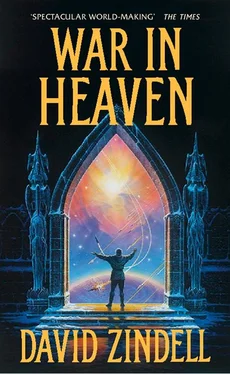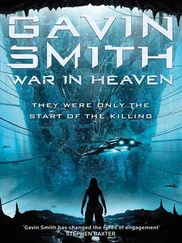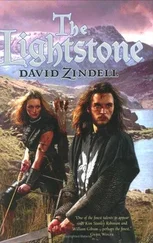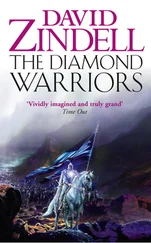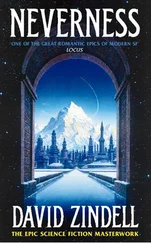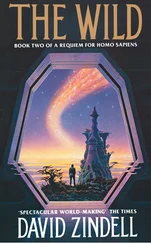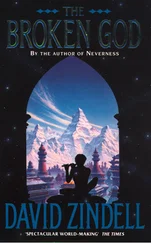‘It’s obvious that the ronin pilots must join us,’ Lord Bede said. He was very much a traditionalist, and his face fell dour and smug. ‘They should take vows to the New Order.’
Now Danlo did smile, for although a thousand Civilized Worlds were represented in the ships sailing through space all around them, Cristobel and the Sonderval – and the Lord Bede – acted as if only the pilots of the two Orders mattered. But what right did they have, Danlo wondered, to choose the fates of thirty thousand ships and millions of men and women? These lords and masters of his Order obviously assumed that after they had decided upon a Lord Pilot, they would parcel out the other ships to their command like colourfully-wrapped presents given at Year’s End – or rather as the Sonderval had already done with the black ships and deep-ships he had escorted to Sheydveg. Or if the Sonderval and Cristobel could not decide who should lead whom, then the two hundred pilots from Thiells and the Fellowship of Free Pilots might fight independently of each other – after first fighting each other for the prize of the vast fleet waiting in the light of a cool, orange star.
‘I must speak to the pilots,’ Danlo told Demothi Bede. For the moment, he was faced away from his fellow pilots’ arguments, and the pit of his lightship was quiet. ‘This fighting among ourselves, this arrogance of ours … is shaida .’
‘Do you have a plan, then, Pilot?’ Demothi Bede asked.
Danlo nodded his head, then told him his plan.
‘Very well,’ Demothi said, smiling his approval. ‘If you’re to try to stop a war, you might as well begin now.’
And so Danlo added his voice to the cacophony filling the pits of three hundred and five lightships. As a master pilot he had as much right to speak as anyone, and he too instantiated as a hologram among them. Because of his renown at mastering a chaos space and crossing the entire Vild – or perhaps because of his blazing blue eyes – the other pilots fell silent and listened to him.
‘We pilots,’ he said, ‘have thought of ourselves as the spirit of the Civilized Worlds. But we have never been their rulers. The Fellowship of Free Worlds – but where is our fellowship when we call each other names like barbarians? And where is the freedom of these worlds if they must simply wait for us to order them to war? Do they, who have homes and children, risk less than we? If we cannot stop this war, they will die like snowworms caught in the sun, perhaps a thousand or a million of them for every pilot who loses his ship. Truly. Where is their freedom, then, to choose their own fate? We are pilots of three hundred and five lightships. Outside my window I have counted … a hundred times as many other ships. Shouldn’t we let their pilots choose who will lead them to war?’
Most of the lightship pilots, upon listening to Danlo, immediately saw the sense of what he said. In truth, few of them really wanted to wage war as two separate Orders of ships, and they dreaded the uncertainties of Cristobel’s dispute with the Sonderval. The Sonderval, for his part, was loath to surrender any important decision to such inferior beings as the pilots and peoples of the Civilized Worlds. But he was at heart a shrewd man whose farsightedness overshadowed even his arrogance. And so, with carefully feigned reluctance, after trading knowing looks with Danlo, he approved this proposal. Only Cristobel, really, and a few of his closest friends such as Alesar Estarei, argued against Danlo. But the tide of passion – the tide of history – had already turned against him. In the pits of their ships, two hundred and fifty pilots struck their diamond rings against whatever hard surface they could find, and called out that the Fellowship of Free Worlds should decide its own fate.
Of course, there was never any real doubt as to what the Fellowship would decide – if indeed they could decide anything at all. More than thirty thousand ships now orbited Sheydveg, and these held at least five million men and women representing a thousand Civilized Worlds. Many of these were princes or gurus, exemplars or elders or arhats. Many there were who might have wished to command the fleet themselves, but except for Markoman of Solsken and Prince Henrios li Ashtoreth, no one was so deluded as to imagine that he could match the skills of even the youngest of lightship pilots. Their debate, then, centred round how they should choose between the Sonderval and Cristobel as Lord Pilot of the Fellowship. (Or if they should favour Helena Charbo or some other master pilot less vainglorious.) Some held that each man and woman of the Fellowship should cast a vote for whomever he believed to be the greatest pilot. Some thought this unfair since a few worlds had sent more than fifty deep-ships carrying thousands of soldiers in each, while many worlds had sent only a few score of black ships; each individual world , it was argued, should cast a single vote.
There isn’t space here to describe the tortuous pathways by which these many people of many worlds came to a decision. It took them sixteen days to agree that each world would indeed have one vote. It took them much less time to cast these votes in favour of allowing the pilots of both Orders to lead them; as Danlo had hoped, they chose the Sonderval as Lord Pilot of the Fellowship of Free Worlds. But the Sonderval was not to be their autarch or ruler; his power was as a warlord only, to command them in battle if they should decide on war. This crucial decision – and many others relating to grand strategy – they would make for themselves. And if they should win against the Ringists and force a peace upon Neverness, it was they who would decide its terms.
The effect of allowing the Civilized Worlds a greater part in wielding power was profound. Although it limited the Sonderval’s freedom to impose his will upon those he led, it actually strengthened his leadership, for it strengthened the feeling of fellowship just beginning to flower among these many worlds like a delicate, new bud. Among those who would die together in war, between leader and led, there can never be too much fellowship. This, too, was part of Danlo’s plan. Many thanked him for his part in ending the stalemate between Cristobel and the Sonderval and playing midwife to the birth of the true Fellowship of Free Worlds. But when Lord Demothi Bede congratulated him on a fine work of diplomacy, his response was strange.
‘Truly, I have helped close the rift between our two Orders of pilots,’ he said in the quiet of his ship’s pit. As he spoke to Demothi Bede (and to the Ede imago), he touched the lightning-bolt scar cut deeply into his forehead.
‘Even Cristobel has accepted the inevitable,’ the Ede imago said with a programmed smile.
‘As well he should,’ Demothi Bede said, ‘considering the Sonderval’s graciousness.’
The Sonderval, after being chosen to lead the fleet, had invited Cristobel and the other ronin pilots to take vows as pilots of the New Order. As an incentive, he had offered to make Cristobel and Alesar Estarei pilot-captains of the newly-formed Eleventh and Twelfth battle groups – and even named Cristobel as his counsellor in all matters of tactics and strategy. Given the Sonderval’s private ways, this would prove an empty honour, but it seemed to cool the fiery Cristobel nevertheless.
‘All has fallen out as you’d hoped,’ Demothi Bede said to Danlo as he played with a mole on the side of his face. ‘Even Prince Henrios has agreed to lead his ships under Alesar Estarei’s command – a prince of Tolikna Tak under orders from a simple master pilot!’
‘Yes,’ Danlo agreed, ‘there is peace among the Fellowship, now.’
‘Then why do you seem so sad?’
Danlo stared out of his lightship’s window at the flashing lights of thirty thousand other ships spread out through near-space above Sheydveg. His eyes fell grave and deep, and he said, ‘What if I have brought a peace to the Fellowship … only to have created a better engine for the waging of war?’
Читать дальше
